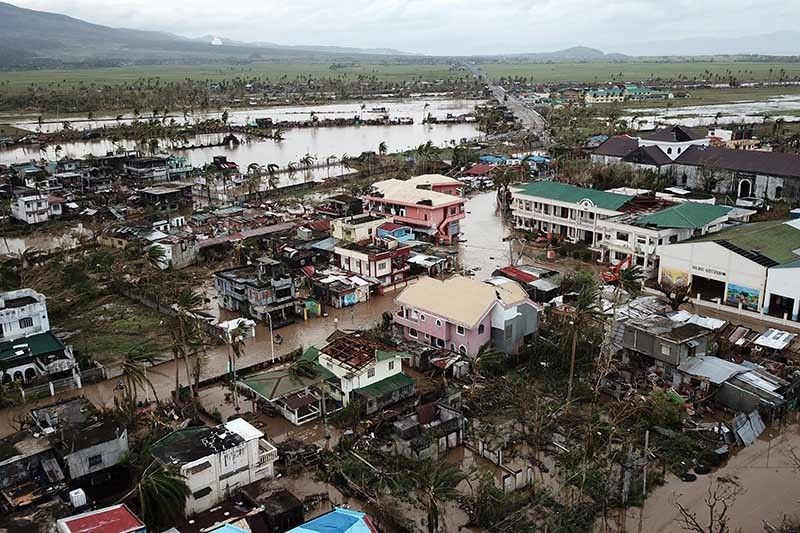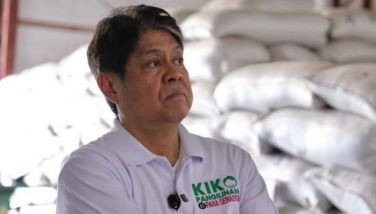Group renews call for climate emergency declaration after Rolly lashes Philippines

MANILA, Philippines — After Super Typhoon Rolly left a trail of destruction in its wake, especially in hardest-hit Bicol region, an environmental group renewed Monday its call for the government to issue a climate emergency declaration.
Rolly (international name: Goni), this year’s strongest storm, left at least 16 people dead and brought severe damage to houses and infrastructure after powering through Southern Luzon with devastating winds and heavy rains. It also forced hundreds of thousands to flee their homes to avoid its wrath.
“Typhoon Rolly is not the strongest typhoon to sweep through the Philippines, nor will it be the last—there will be more, and they will most likely be worse,” said Virgina Llorin, Greenpeace Philippines campaigner.
Greenpeace has been urging the government to declare climate emergency to step up its climate action. For the group, a climate emergency declaration should strengthen an “urgent whole-of-government and whole-of-society mobilization to respond to the climate crisis at the scale and speed needed to address it and protect the Filipino people.”
The declaration must also call on the international community to act with the same urgency and demand equity from governments and accountability from corporations for the sake of countries that are least responsible for climate crisis but face the most vulnerabilities such as the Philippines.
“Now is the time for the Philippine government to show true climate leadership by championing climate justice for the poorest of the poor who bear the brunt of the damage, and calling for accountability from industrialized nations as well as corporations most responsible for the climate crisis,” Llorin said.
Vulnerable
Due to its location in the so-called Ring of Fire in the Pacific Ocean, the Philippines is exposed to disasters such as typhoons and earthquake. From 2000 to 2019, the archipelagic nation experienced 304 disasters, according to the United Nations Office for Disaster Risk Reduction.
The warming of Earth’s temperature is exacerbating the country’s exposure to disasters, making it one of the most vulnerable nations to its devastating impacts.
“The climate crisis is costing Filipino people and communities their lives, livelihoods, health, security and dignity. We can’t keep counting the dead and the damage after every typhoon forever,” Llorin said.
In September, Malacañang said President Rodrigo Duterte would look into the suggestion to declare climate emergency, as tackling climate change is supposedly on the top of his agenda.
Last week, the Department of Energy announced it would no longer accept proposals to construct new coal power plants, marking a dramatic shift in its energy policy. While groups welcomed the move, they urged for a permanent moratorium and a phaseout plan for existing coal and other fossil fuel facilities in the country.
- Latest
- Trending































